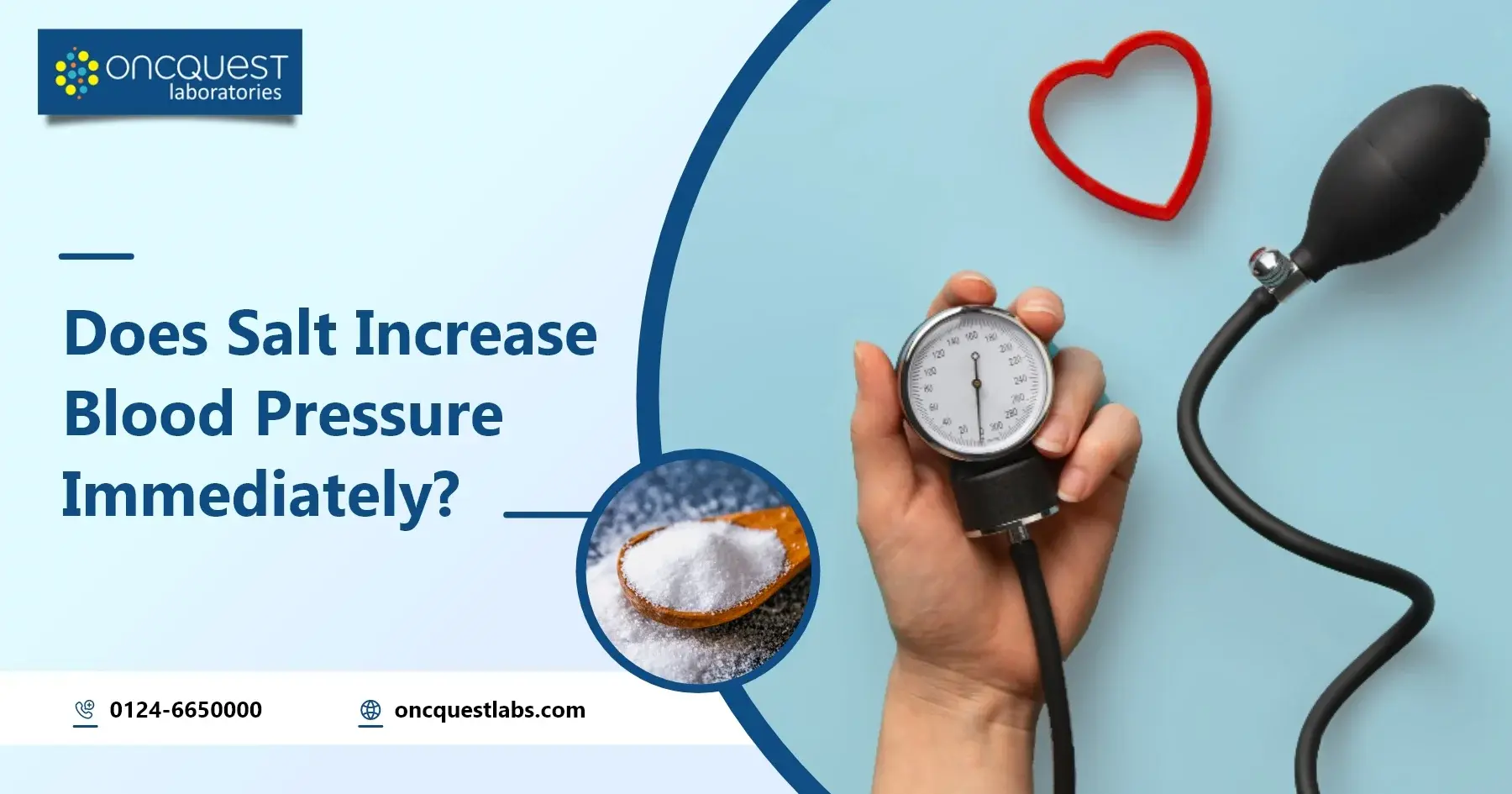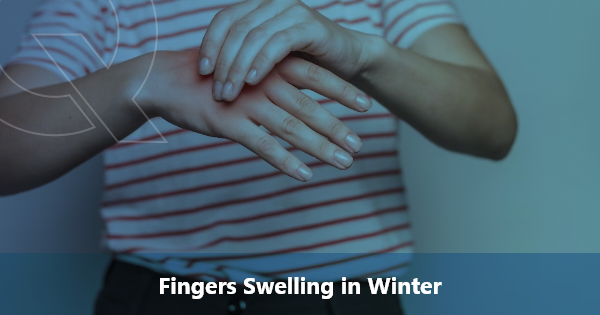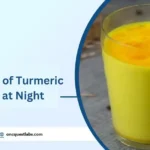Salt is a common ingredient that is added to all foods. When we add salt to food, it adds flavor and becomes tasty. But if we eat salt in excessive amounts, it will increase our blood stress level. Now you will question how? So here is an example:
When we eat salty food, like blood, salt dissolves in the body as a fluid. This dissolved salt contains sodium, a mineral that performs a crucial function in regulating fluid balance in our cells and tissues. When we consume more sodium, our body requires more sodium to balance it. This more water will increase the extent of blood in our blood vessels, placing strain on their partitions. In this blog, we will explain the science behind it. Let’s begin our journey and understand: does salt increase blood pressure immediately?
Contents
Overview
| Aspect | Description |
| Salt Consumption | Blood and other bodily fluids get more sodium when salty meals and drinks are consumed. |
| Sodium Dissolution | When salt dissolves in bodily fluids, sodium ions are released into the blood. |
| Sodium and Fluid Balance | The body’s equilibrium between sodium and fluid levels is upset by too much salt. |
| Increased Blood Volume | Blood channel walls are under pressure as a result of retained water’s increased blood volume. |
| Blood Pressure Elevation | Blood pressure rises instantly as a result of the increased blood volume. |
| Impact on Heart and Vessels | The heart pumps blood via blood arteries more forcefully. |
| Immediate Effects | Some people may get symptoms from high blood pressure, such as headaches or dizziness. |
| Risk for Hypertensive | Those who have hypertension are more likely to experience an instantaneous spike in blood pressure when they consume salt. |
| Risk for Heart Conditions | Elevated blood pressure caused by salt may have more severe acute consequences on those who have cardiac issues. |
How is blood pressure affected by salt?
Sodium is found in salt. Actually, sodium and chloride are the two main ingredients of table salt. We are aware that eating too much salt can raise blood pressure. Although several scientific studies have been published with thoughts and evidence for various possibilities, it is unknown with certainty how this actually occurs. A brief synopsis of two of these hypotheses is provided below:
- Salt has the ability to make arteries more rigid. The blood channels that transport blood from the heart to the body’s other organs are called arteries. Their walls are often highly elastic and supple. The artery walls can expand further to give the blood more room and reduce blood pressure if the heart has to beat faster. Elevated salt intake might damage and stiffen the walls of the arteries. They cannot stretch when necessary if they are rigid, which prevents the blood from getting the additional room it needs. As a result, blood pressure rises.
- Increased blood sodium levels are a result of a diet high in salt. The kidneys’ normal function is to eliminate excess salt. They occasionally aren’t able to perform this as well, maybe for a variety of reasons. A greater concentration of sodium in our blood can cause two things:
- It may cause us to feel thirsty, and consuming more alcohol may cause our blood pressure to rise.
- Angiotensin II is a hormone that is elevated as a result. Due to this hormone’s remarkable ability to elevate blood pressure, two distinct classes of blood pressure-reducing medications target it.
How soon is blood pressure affected by salt?
Depending on the amount of salt consumed, It may take days for little doses of sodium (2–5 mmol/L, or 46–115 mg) to start working. Within an hour, higher doses (15 mmol or more, or 345 mg) may raise blood pressure.
In contrast, the sodium content of half a teaspoon of salt is 1150 mg. Around 2600 mg of sodium are included in a can of baked beans. There are around 400 mg in a little bag of salt-and-vinegar crisps. Therefore, it would be deemed to have a “large amount” of salt, even a tiny bag of crisps, and might raise blood pressure within one hour.
Consuming a diet high in salt appears to elevate blood pressure in certain individuals but not in others. There may also be differences in the amount of blood pressure rise; some individuals may have a significant increase, while others may just experience a slight one. A diet heavy in salt can be detrimental, even for individuals whose blood pressure doesn’t seem to be impacted by it. This is due to the fact that too much salt can harm other parts of the body.
You may be aware of the health advantages of Himalayan salt, sometimes known as pink salt. But keep in mind that all salt contains sodium and chloride, regardless of its color or place of origin. Regardless of the salt’s color or brand, the sodium content will remain relatively constant. Blood pressure rises as a result of eating too much salt. Thus, Himalayan salt still has comparable levels of sodium to regular salt and can still raise blood pressure.
Can salt reduction lower blood pressure?
Most people’s blood pressure can be lowered by cutting back on salt in their diet. In general, we all require a small amount of salt daily—likely no more than 500 mg. Small amounts of salt can be found naturally in wholesome foods such fruits, vegetables, cereals, and unsalted nuts.
In reality, the typical person consumes 3,400 mg of salt each day—roughly seven times the recommended amount! Lowering salt consumption can lower blood pressure on both the systolic and diastolic levels, even for people whose diets don’t include a lot of salt.
- Adopting the DASH diet is one strategy to lower salt consumption from food. Dietary Approaches to Stop Hypertension, or DASH, is a plan that can help lower blood pressure and reduce salt intake. For its heart-healthy qualities, it is frequently rated as one of the best diets. The diet is adaptable and suggests the following foods per day:
- Six to eight servings of healthy grains
- Four to five pieces of fruit
- Four to five servings of veggies
- Two to three servings of mostly low- or no-fat dairy
- Six or less servings of fish, poultry, or lean meat
- Four or five servings of legumes, seeds, and nuts each week
- Minimal sugar and fat content
Restricting salt intake to 2,300 mg per day; where applicable, it says that 1,500 mg per day is much more beneficial in lowering blood pressure. As mentioned above, the DASH diet encourages eating a healthy, balanced diet that includes the major food categories. Additionally, it can help decrease cholesterol, promote weight reduction, and minimize the risk of diabetes.
How to reduce salt intake?
- In addition to modifying your food generally, as the DASH diet suggests, there are three more methods to cut back on salt:
- Foods heavy in salt, such cheese, processed meats, crisps, microwave meals, and takeout, should be avoided or consumed in moderation.
- When you go grocery shopping, look for and use the traffic light labeling on items.
- Choose meals with a “green” sodium concentration.
- Try using herbs or other spices without salt as a salt substitute while cooking at home.
- As soya sauce contains a lot of salt, limit it too.
Why is it important to keep an eye on high blood pressure?
Heart illness, including heart attacks, strokes, and renal disease can all be brought on by high blood pressure. When a patient goes to the doctor or nurse for another reason and the healthcare provider requests to take their blood pressure, excessive blood pressure is frequently discovered. It is now more crucial than ever for each person to take the effort to find out their own blood pressure readings because so many instruments are now available.
Frequently asked questions
Q1: Can salt cause instant high blood pressure?
A1: It is commonly acknowledged that eating a lot of salt causes blood pressure to increase. Only one-third of the participants with normotension, however, were said to exhibit salt sensitivity in their blood pressure.
Q2: What increases BP instantly?
A2: Not Taking Any Medicines. Making a countermovement: You may increase blood pressure and promote blood flow by clenching your buttocks, crossing your legs, or making a fist. Usually, the effect takes effect quickly and wears off in a few hours.
Q3: How can I flush sodium out of my system fast?
A3: Sweat, tears, and urine are the body’s natural ways of eliminating sodium. Consume a lot of water and immediately give up salt and salty meals.
Q4: Can drinking salt water increase BP?
A4: This is because an increased intake of salt causes your body’s intravascular volume to rise and your circulatory system to naturally contain more water.
Q5: Is salt good for low BP?
A5: Because salt, or sodium, can sometimes and severely elevate blood pressure, experts normally advise decreasing salt intake. Nonetheless, that may be advantageous for those who have low blood pressure. However, heart failure can result from an excess of salt, particularly in elderly persons.





